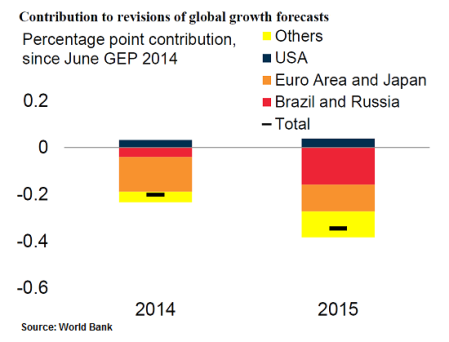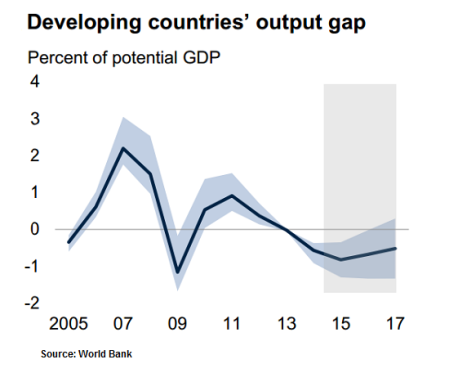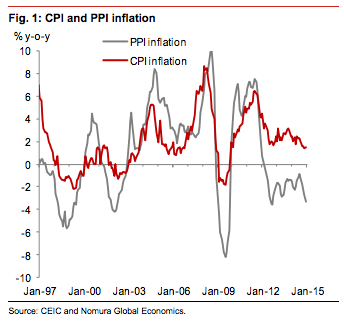by Michael Roberts
“Words fail me,” said Swatch Chief Executive Officer Nick Hayek speaking yesterday, “Today’s SNB action is a tsunami; for the export industry and for tourism, and finally for the entire country.” Hayek was referring to the decision of the Swiss National Bank (SNB) to drop its peg or cap of the Swiss franc with the euro. The SNB had been fixing the exchange rate of the franc at 1.20 to the euro. It was doing this to try and keep Swiss industry competitive with the rest of its Eurozone competitors in France, Germany and Italy. But international companies, financial institutions and investors wanted to hold their cash (ill-gotten gains?) in Swiss francs, the epitomy of safety, so money kept flooding in from euros and other currencies into the franc. The only way the SNB could dam this flood was by using its FX reserves to buy euros as fast as investors bought Swiss francs.
But this meant that the SNB was building up a huge stock of euros on its balance sheet and the euro was still losing value against other currencies. Its stock of euros reached 80% of Swiss GDP. When it became clear that next week the European Central Bank was going to start printing huge amounts of euros to buy Eurozone government bonds in order to weaken the euro even more in an attempt to make France, Germany etc even more competitive in world export markets, the SNB decided that it could not hold the dam anymore, let it be breached and the tsunami came.
The Swiss franc appreciated against the euro by over 30% in a few hours before settling back to a 17% rise. This is a catastrophe for Swiss companies, especially relatively small ones that make their money in euros rather than dollars. Hayek’s company, Swatch, the world’s biggest maker of Swiss watches, dropped 17% in value. Holcim, the world’s biggest cement maker, slid 13%. Even Nestle, the world’s largest food company, which gets about 98% of its revenue from outside Switzerland, declined as much as 11%, the biggest intraday drop in more than 17 years.
The SNB will try to stem the purchase of Swiss francs by investors by charging to hold deposits in Swiss banks. In other words, if you want to have Swiss francs, you won’t get any interest on your deposit; on the contrary, you will pay up to 1.5% a year to the bank for the privilege! This is unprecedented in post-war banking. The Swiss action is a barometer of the growing deflationary pressures on the major economies. As IMF director general Christine Lagarde put it yesterday, global growth was “still too low, too brittle and too lopsided”. There was a risk, she added, of the Eurozone and Japan getting stuck “in a world of low growth and low inflation for a prolonged period”.
Next week, the global corporate chief executives and politicians meet in the Swiss ski resort of Davos for the annual jamboree where the great and the not-so-good discuss the key problems of world capitalism and strategies for dealing with them. Last year it was inequality and the need for emerging economies to close the gap with advanced economies. This year it is going to be the spectre of deflation and continued slow global growth. The Swiss franc tsunami will concentrate the minds.
The consensus continues to rely on the US economy to lead the way out of the Long Depression. Last week the World Bank cut its forecast for global real GDP growth – yet again. The bank forecast the world economy will grow 3.0% this year and 3.3% in 2016, down from its earlier forecast of 3.4% and 3.5%, respectively. Indeed, this lower forecast relies on the US growing faster than the 2.5% rate in 2014, or 3.2% in 2015.
But it made the point that supposedly stronger US economic growth this year would be unable to compensate for slowing growth and deflation elsewhere; in the Eurozone, Japan and the major emerging economies of Russia, Brazil, China, South Africa and Turkey (only India might grow faster this year).

World trade growth continues to fall well behind trend before the Great Recession.

The so-called emerging economies are running well below their full potential, according to the World Bank.

The slowdown in China threatens to push the economy into deflation there too.

A new report by the IMF shows that, while global unemployment is finally back to levels seen before the global financial crisis, global employment is growing at just 1.5% a year, far slower than the 2.0-2.5% growth rate seen before the crisis.

The new report shows a striking divergence between advanced and emerging economies. Unemployment in advanced economies stood at 7.4% in 2014, far higher than the 5.7% seen in 2007. The Eurozone is largely responsible for that elevated level, with most economies other than Germany struggling to regain ground. And the report clearly underestimates unemployment in the major emerging economies, which is likely to rise during this year, as Russia and Brazil go into recession; and China, Turkey and South Africa slow.
As Mohammed El-Erian, the guru of bond fund managers, put it, the optimism likely to be expressed in Davos is based on some doubtful assumptions: faster US economic growth, no more tsunamis for corporations like that with the Swiss franc, and a stop to the slide into deflation as energy prices drop.
The flood of credit injected into the major economies since 2009 to kickstart economic recovery and return to sustained trend economic growth has failed to do so. The ECB and the Bank of Japan are planning more credit injections, while the US Fed has stopped and now wants to tighten credit and ‘normalise’ interest rates. Global monetary policy is thus at sixes and sevens because of the low and imbalanced rate of growth.
Most important, the hopes of Davos attendees that the US will lead the way are likely to be dashed. All the very latest data from the US suggests that the economy has slowed considerably from its apparently fast pace in Q3 2014 (see my post,
https://thenextrecession.wordpress.com/2015/01/11/the-spectre-of-deflation/). The US inflation rate, out today, fell to just 0.8% in December.
|The US will be unable to hold up the world like Atlas. A deflationary tsunami is weighing it down.
PS don’t forget my facebook site at https://www.facebook.com/pages/Michael-Roberts-blog/925340197491022
“Words fail me,” said Swatch Chief Executive Officer Nick Hayek speaking yesterday, “Today’s SNB action is a tsunami; for the export industry and for tourism, and finally for the entire country.” Hayek was referring to the decision of the Swiss National Bank (SNB) to drop its peg or cap of the Swiss franc with the euro. The SNB had been fixing the exchange rate of the franc at 1.20 to the euro. It was doing this to try and keep Swiss industry competitive with the rest of its Eurozone competitors in France, Germany and Italy. But international companies, financial institutions and investors wanted to hold their cash (ill-gotten gains?) in Swiss francs, the epitomy of safety, so money kept flooding in from euros and other currencies into the franc. The only way the SNB could dam this flood was by using its FX reserves to buy euros as fast as investors bought Swiss francs.
But this meant that the SNB was building up a huge stock of euros on its balance sheet and the euro was still losing value against other currencies. Its stock of euros reached 80% of Swiss GDP. When it became clear that next week the European Central Bank was going to start printing huge amounts of euros to buy Eurozone government bonds in order to weaken the euro even more in an attempt to make France, Germany etc even more competitive in world export markets, the SNB decided that it could not hold the dam anymore, let it be breached and the tsunami came.
The Swiss franc appreciated against the euro by over 30% in a few hours before settling back to a 17% rise. This is a catastrophe for Swiss companies, especially relatively small ones that make their money in euros rather than dollars. Hayek’s company, Swatch, the world’s biggest maker of Swiss watches, dropped 17% in value. Holcim, the world’s biggest cement maker, slid 13%. Even Nestle, the world’s largest food company, which gets about 98% of its revenue from outside Switzerland, declined as much as 11%, the biggest intraday drop in more than 17 years.
The SNB will try to stem the purchase of Swiss francs by investors by charging to hold deposits in Swiss banks. In other words, if you want to have Swiss francs, you won’t get any interest on your deposit; on the contrary, you will pay up to 1.5% a year to the bank for the privilege! This is unprecedented in post-war banking. The Swiss action is a barometer of the growing deflationary pressures on the major economies. As IMF director general Christine Lagarde put it yesterday, global growth was “still too low, too brittle and too lopsided”. There was a risk, she added, of the Eurozone and Japan getting stuck “in a world of low growth and low inflation for a prolonged period”.
Next week, the global corporate chief executives and politicians meet in the Swiss ski resort of Davos for the annual jamboree where the great and the not-so-good discuss the key problems of world capitalism and strategies for dealing with them. Last year it was inequality and the need for emerging economies to close the gap with advanced economies. This year it is going to be the spectre of deflation and continued slow global growth. The Swiss franc tsunami will concentrate the minds.
The consensus continues to rely on the US economy to lead the way out of the Long Depression. Last week the World Bank cut its forecast for global real GDP growth – yet again. The bank forecast the world economy will grow 3.0% this year and 3.3% in 2016, down from its earlier forecast of 3.4% and 3.5%, respectively. Indeed, this lower forecast relies on the US growing faster than the 2.5% rate in 2014, or 3.2% in 2015.
But it made the point that supposedly stronger US economic growth this year would be unable to compensate for slowing growth and deflation elsewhere; in the Eurozone, Japan and the major emerging economies of Russia, Brazil, China, South Africa and Turkey (only India might grow faster this year).

World trade growth continues to fall well behind trend before the Great Recession.

The so-called emerging economies are running well below their full potential, according to the World Bank.

The slowdown in China threatens to push the economy into deflation there too.

A new report by the IMF shows that, while global unemployment is finally back to levels seen before the global financial crisis, global employment is growing at just 1.5% a year, far slower than the 2.0-2.5% growth rate seen before the crisis.

The new report shows a striking divergence between advanced and emerging economies. Unemployment in advanced economies stood at 7.4% in 2014, far higher than the 5.7% seen in 2007. The Eurozone is largely responsible for that elevated level, with most economies other than Germany struggling to regain ground. And the report clearly underestimates unemployment in the major emerging economies, which is likely to rise during this year, as Russia and Brazil go into recession; and China, Turkey and South Africa slow.
As Mohammed El-Erian, the guru of bond fund managers, put it, the optimism likely to be expressed in Davos is based on some doubtful assumptions: faster US economic growth, no more tsunamis for corporations like that with the Swiss franc, and a stop to the slide into deflation as energy prices drop.
The flood of credit injected into the major economies since 2009 to kickstart economic recovery and return to sustained trend economic growth has failed to do so. The ECB and the Bank of Japan are planning more credit injections, while the US Fed has stopped and now wants to tighten credit and ‘normalise’ interest rates. Global monetary policy is thus at sixes and sevens because of the low and imbalanced rate of growth.
Most important, the hopes of Davos attendees that the US will lead the way are likely to be dashed. All the very latest data from the US suggests that the economy has slowed considerably from its apparently fast pace in Q3 2014 (see my post,
https://thenextrecession.wordpress.com/2015/01/11/the-spectre-of-deflation/). The US inflation rate, out today, fell to just 0.8% in December.
|The US will be unable to hold up the world like Atlas. A deflationary tsunami is weighing it down.
PS don’t forget my facebook site at https://www.facebook.com/pages/Michael-Roberts-blog/925340197491022
No comments:
Post a Comment